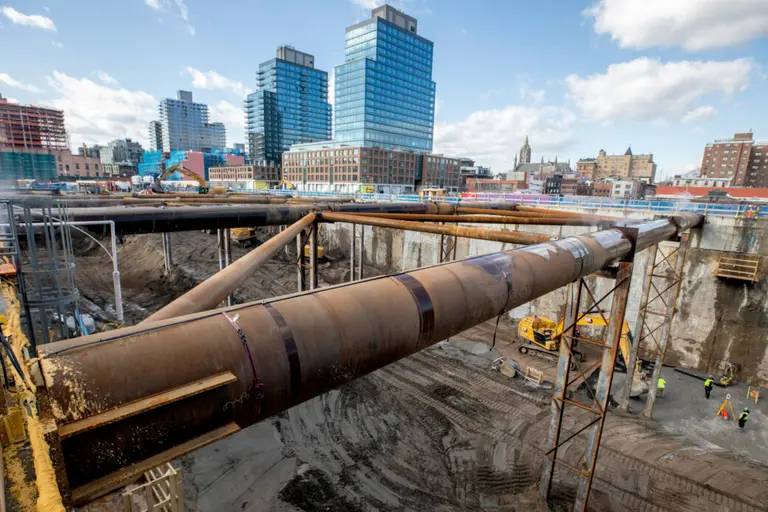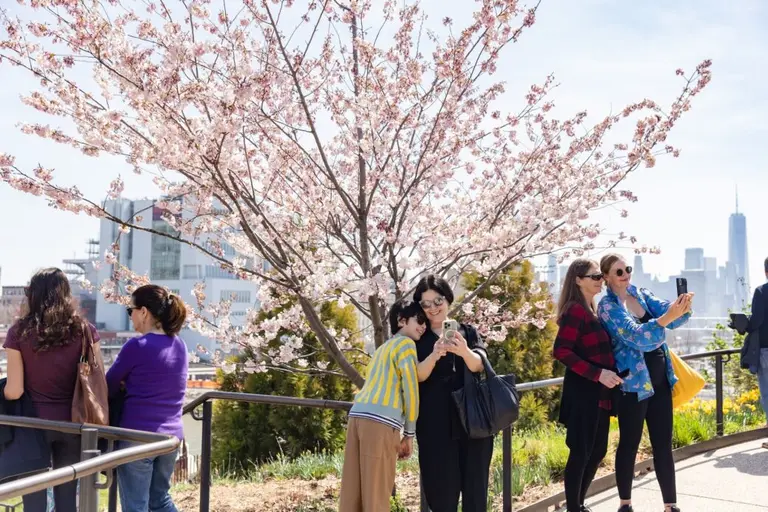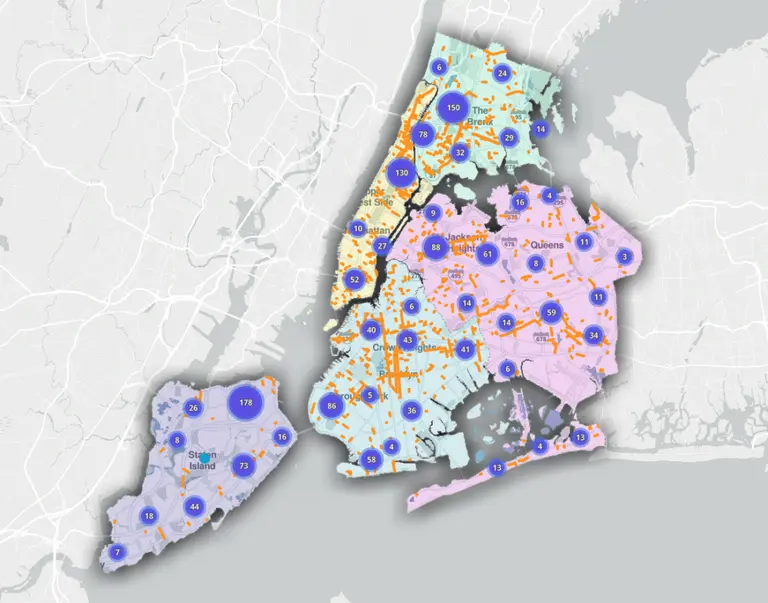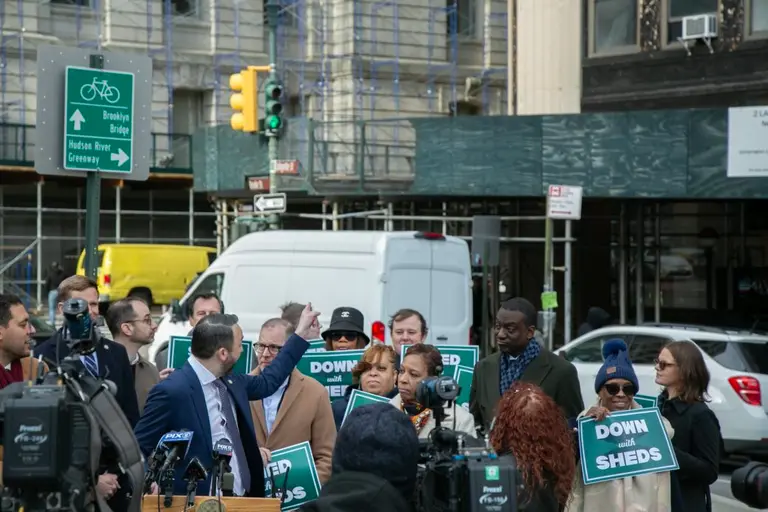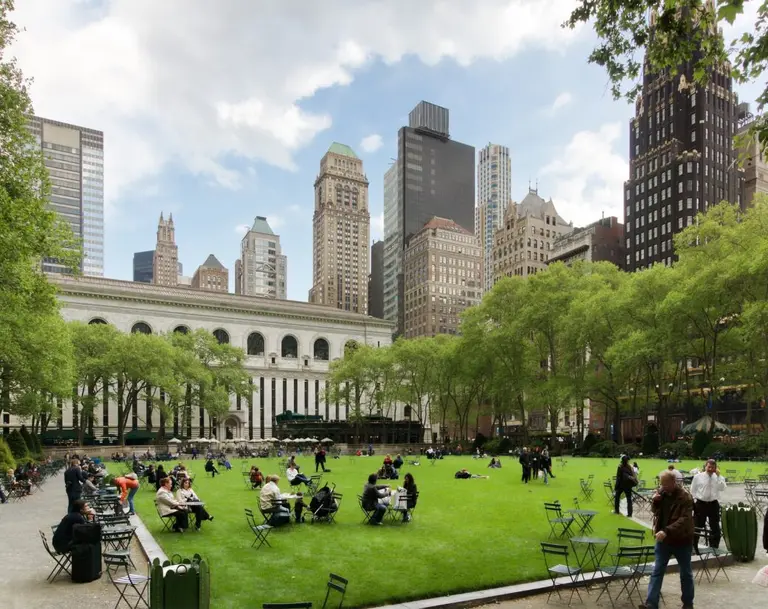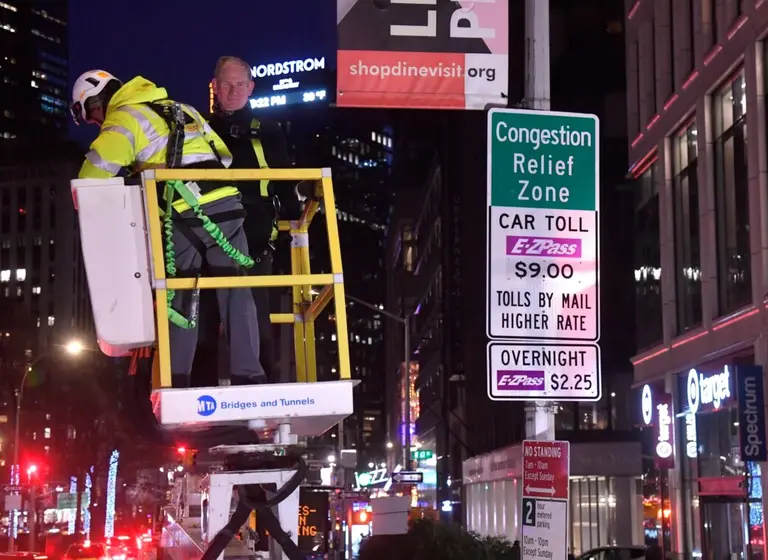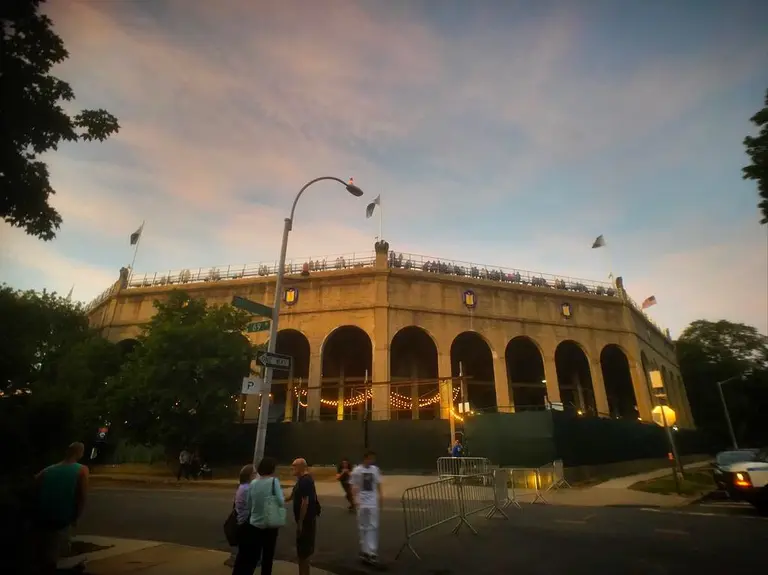A guide to voting in the 2024 election in NYC

Photo by John Morton on Flickr
With Election Day less than two weeks away, it’s time to make a plan to vote. This year, it’s easier than ever to vote in New York, with new laws allowing mail-in ballots for all voters and later registration deadlines. On Tuesday, November 5, New Yorkers can cast their votes for the 47th president of the United States, federal and state representatives, other local offices, and six ballot proposals. Ahead, here’s everything you need to know about where, when, and how to vote, so you can participate in the democratic process with confidence.
How to register to vote
The deadline to register for the general election is Saturday, October 26. Thanks to a recent partnership between NYC Votes and TurboVote, all New York residents can now register to vote online in just five minutes here.
To be eligible to vote in NYC, you must be a U.S. citizen, a resident of NYC for at least 30 days, and at least 18 years old.
You can also register to vote online through the state’s Department of Motor Vehicles if you have a valid state driver’s license, permit, or non-driver ID, along with the last four digits of your Social Security number.
If you don’t have a state ID, you can complete a voter registration form and mail it to the Board of Elections. Alternatively, you can register in person at your local Borough Board of Elections office. You can find your local elections office here.
Check if you are registered to vote here.
How to vote early
You don’t have to wait until Election Day to cast your vote. From Saturday, October 26, to Sunday, November 3, you can vote early, either in person or by mail. Early voting takes place from 8 a.m. to 8 p.m. on weekdays and from 8 a.m. to 5 p.m. on weekends. In-person early voting sites might be different from Election Day polling sites so double-check your polling place location here.
This year, it’s even easier to vote early, thanks to the New York Early Mail Voter Act, which allows everyone to vote by mail without a reason.
To vote early, you must apply online or by mail by Saturday, October 26. The deadline to apply in person at your local Board of Elections office is November 4. If you have a disability, you can request an accessible ballot here.
Upon receiving your early vote ballot, fill it out, seal it, and then drop it off in a mailbox for return. with a postmark no later than November 5.
How to vote by mail
If you will be away from New York during the election, unable to appear at the polls because of an illness or disability, are a primary caregiver, or for another reason listed here, you can qualify for an absentee ballot.
You can request an absentee ballot by October 26. Request a ballot online here. To request by mail, fill out a paper request form and send it to your local NYC Board of Elections office.
Additionally, you can call the NYC Board of Elections at 1-866-VOTE-NYC (1-866-868-3692) to ask for a ballot request form to be sent to you.
After receiving your ballot, it must be postmarked by November 5. The return postage is prepaid, and you don’t need to add a stamp. You can also drop off your ballot at any poll site or Board of Elections office by November 5. You can drop it off at an early voting poll site between October 26 and November 3.
You can track your ballot after sending it here. Get an in-depth overview of voting by mail here.
Keep in mind that an early mail ballot functions the same as an absentee ballot. The only difference when requesting an absentee ballot is you will be asked to share your reason for voting absentee and won’t need one when voting early by mail.
How to vote in person
On Election Day, polls are open from 6 a.m. to 9 p.m. You can find your local poll site here.
What’s on the ballot?
New Yorkers will all vote for president, with Vice President Kamala Harris or former President Donald Trump as the major choices, and six ballot proposals, but the rest of the ballot will look different depending on the races in your district. Proposal 1 is on the ballot after the New York State Legislature passed the Equal Rights Amendment (ERA); it would add anti-discrimination provisions to the state constitution, prohibiting discrimination based on ethnicity, national origin, age, disability, and sex, including sexual orientation, gender identity, pregnancy, and abortion rights, protecting these rights in the constitution.
Proposals 2 through 6 relate to changes to the City Charter pushed for by Mayor Eric Adams; civic groups and the City Council say these proposals would “weaken checks-and-balances, making city government less responsive to New Yorkers.”
The text that will appear on NYC ballots next to each proposal is as follows:
Ballot Proposal 1: Adds Certain Protections to the State Bill of Rights
The proposal adds protections to the State Constitution’s Bill of Rights to prohibit discrimination on the basis of ethnicity, origin, age, disability, and sex — including sexual orientation, gender identity, pregnancy, and pregnancy outcomes. It would also protect New Yorkers who seek access to reproductive healthcare from discrimination on that basis.
Ballot Proposal 2: Cleaning Public Property
The Department of Sanitation (DSNY) would have increased authority to keep all city property clean, including parks and highway medians, and to hold street vendors accountable for following rules at those locations. It would also allow DSNY to regulate how New Yorkers put out their garbage for collection.
Ballot Proposal 3: Additional Estimates of the Cost of Proposed Laws and Updates to Budget Deadlines
The City Council provides cost estimates of proposed laws before voting on them. The proposal would give the Mayor’s Office of Management and Budget the opportunity to provide its own cost estimates for proposed laws and require the Council to publish their cost estimates before public hearings on proposed laws. This proposal would also require the Council to formally notify the Mayor’s office before holding public hearings or votes on proposed laws. Lastly, this proposal would extend the deadline for certain budget reports in the first year of a new Mayoral administration, and permanently extend the deadline for the Mayor to publish their annual City budget.
Ballot Proposal 4: More Notice and Time Before Votes on Public Safety Legislation
The Council must give 30 days notice before voting on public safety laws that impact the Police Department, Department of Correction, or the Fire Department. During this time, the Mayor and affected City agencies may also hold public hearings to hear additional public input.
Ballot Proposal 5: Capital Planning
The City must assess the cost of maintaining city facilities, infrastructure, and investments and publish these assessments in capital planning reports.
The proposal would create a new role to support MWBEs, allow the Mayor to designate which agency issues film permits, and merge two boards that manage city records into one.


